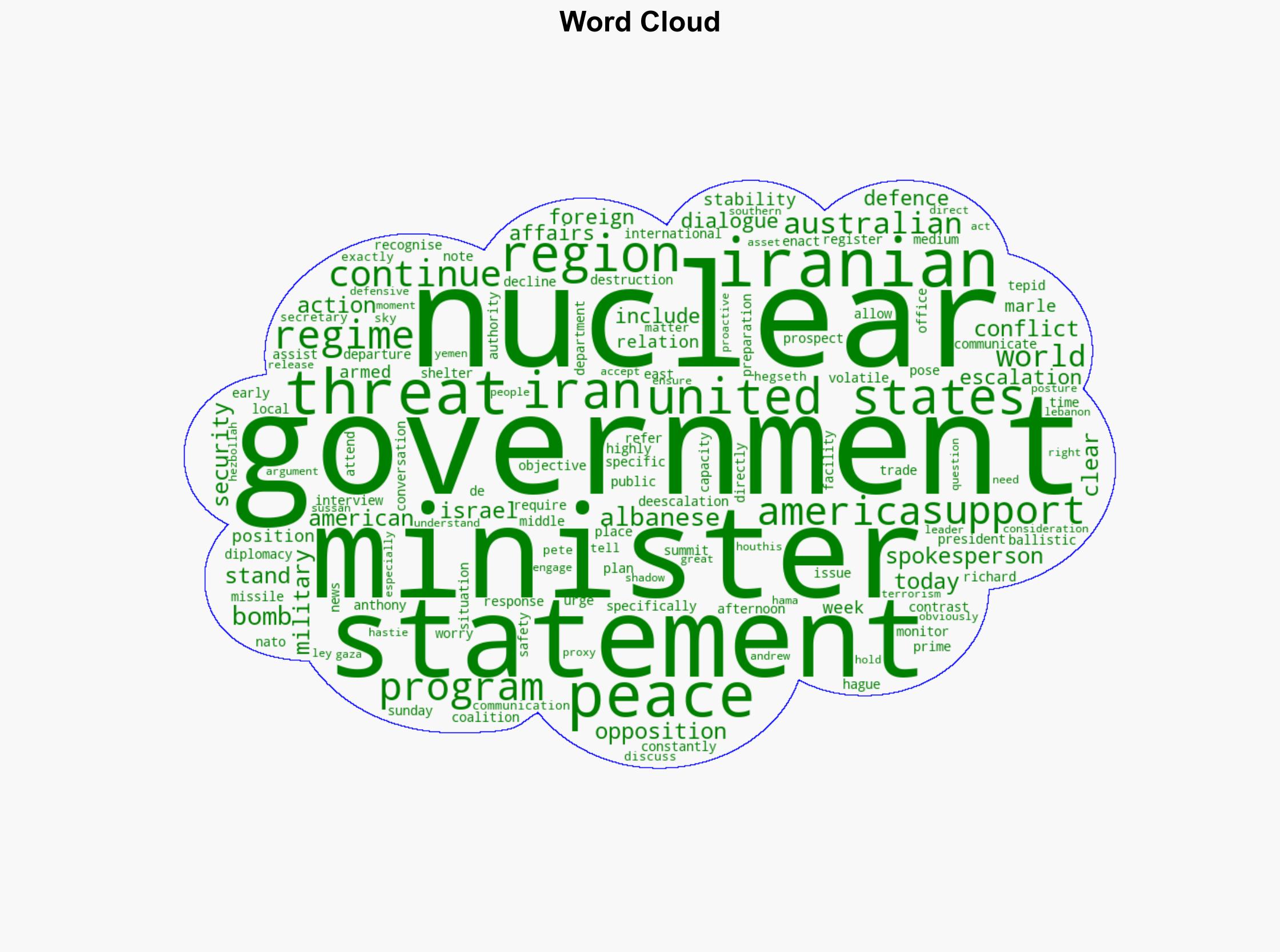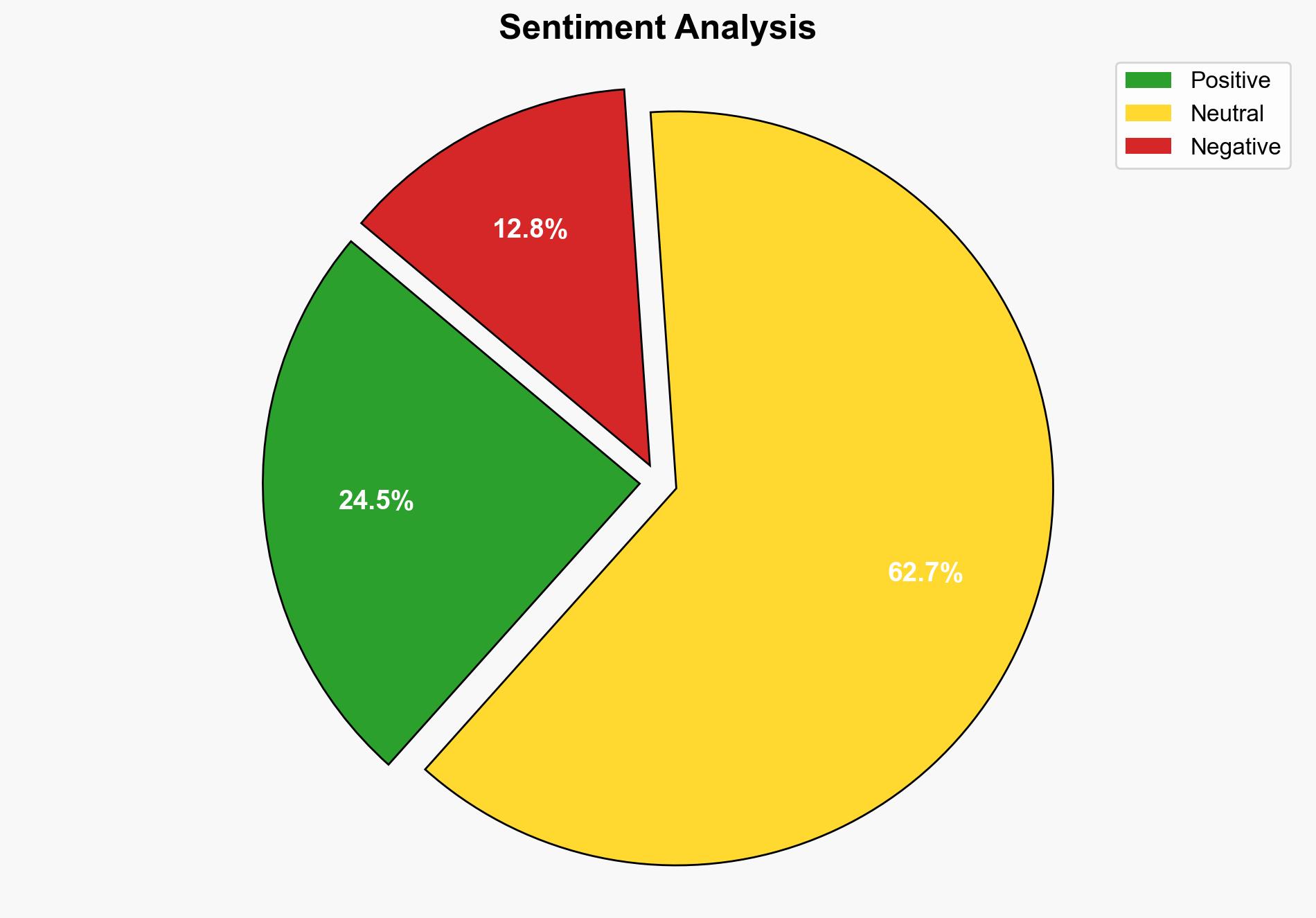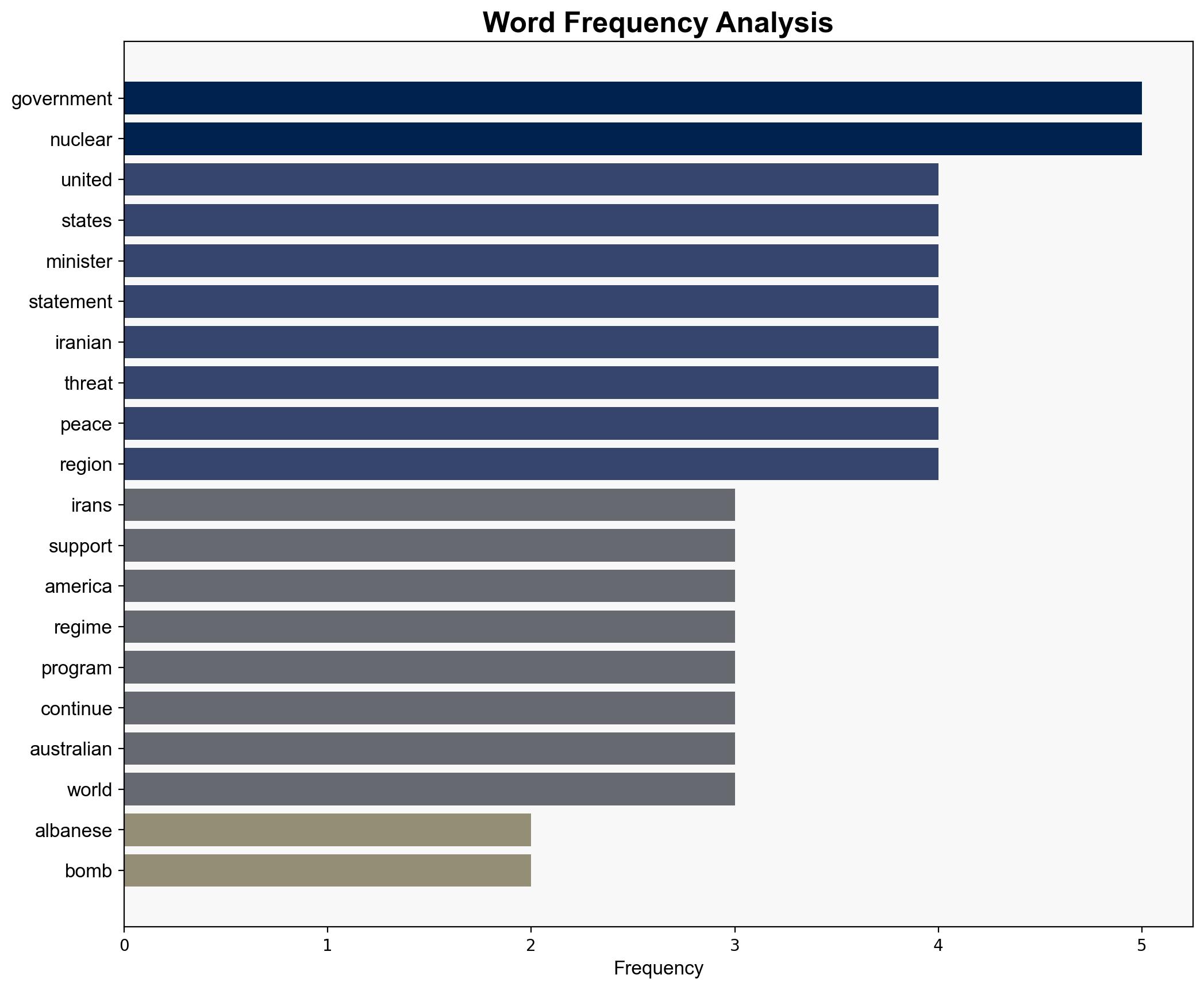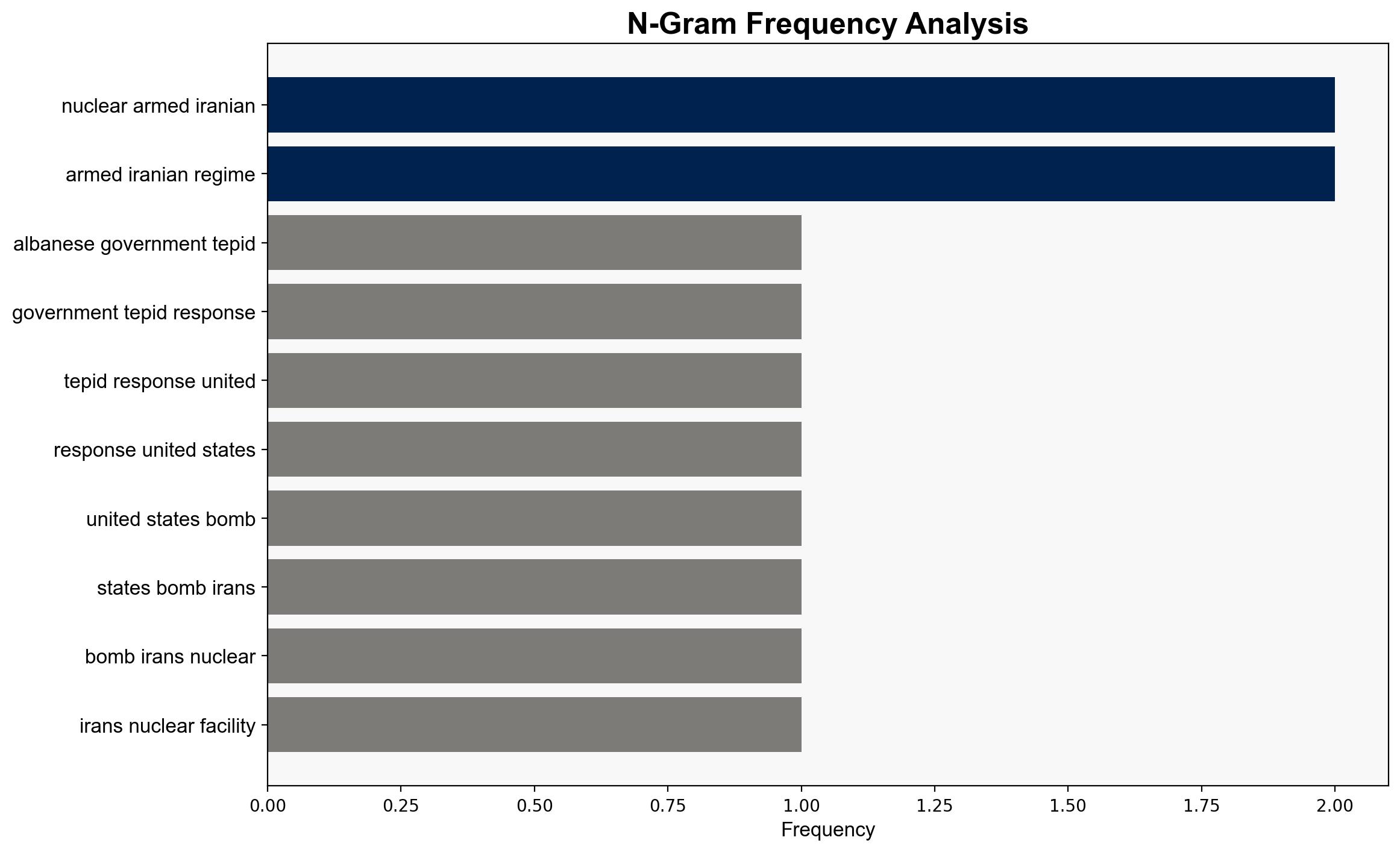Muted response from Albanese government on US attack on Iran – The Conversation Africa
Published on: 2025-06-22
Intelligence Report: Muted response from Albanese government on US attack on Iran – The Conversation Africa
1. BLUF (Bottom Line Up Front)
The Albanese government’s response to the US military action against Iran’s nuclear facility is notably restrained. While acknowledging the threat posed by Iran’s nuclear ambitions, the government emphasizes the need for de-escalation and dialogue. This stance contrasts with the opposition’s firm support for US actions. The situation remains volatile, with potential implications for regional stability and international relations.
2. Detailed Analysis
The following structured analytic techniques have been applied to ensure methodological consistency:
ACH 2.0
Through hypothesis testing, it is assessed that the Albanese government aims to balance diplomatic relations with the US while advocating for peaceful resolutions in the Middle East.
Indicators Development
Monitoring of regional diplomatic communications and military movements is crucial to anticipate further escalations or shifts in alliances.
Narrative Pattern Analysis
There is a noticeable divergence in narrative between the government and opposition, with the latter aligning more closely with US rhetoric. This could influence public opinion and policy direction.
3. Implications and Strategic Risks
The muted response from the Albanese government may lead to strained relations with the US if perceived as insufficient support. Conversely, it could bolster Australia’s standing as a mediator in regional conflicts. The risk of escalation remains high, with potential impacts on global oil markets and regional security dynamics.
4. Recommendations and Outlook
- Engage in diplomatic efforts to facilitate dialogue between the US and Iran, potentially positioning Australia as a neutral mediator.
- Enhance intelligence sharing with allies to monitor potential retaliatory actions by Iran or its proxies.
- Scenario-based projections:
- Best Case: Successful de-escalation leads to renewed diplomatic talks.
- Worst Case: Escalation results in broader regional conflict affecting global stability.
- Most Likely: Continued tension with intermittent diplomatic engagements.
5. Key Individuals and Entities
Anthony Albanese, Richard Marles, Sussan Ley, Andrew Hastie, Pete Hegseth
6. Thematic Tags
national security threats, cybersecurity, counter-terrorism, regional focus





